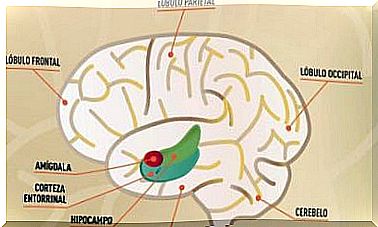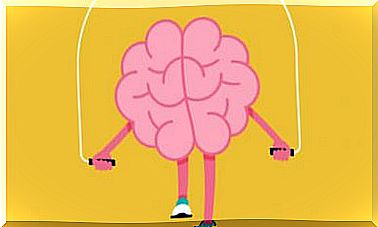Othello’s Syndrome: When Jealousy Is Uncontrollable And Pathological

Being jealous is quite normal in relationships, the problem appears when they become uncontrollable, constant and border on the unhealthy. In these cases, jealousy ceases to be a concern to become a real problem that, in most cases, leads to the so-called Othello syndrome.
This syndrome, which is also known as monosymptomatic delusion of jealousy, receives its name from the play “Othello, the Moor from Venice” by William Shakespeare. In it, Othello, the main character weaves a web of suspicions about the alleged infidelity of Desdemona, his partner, until he murders her and then falls into suicide.
Thus, people who enter those obsessive spirals of suspicion and mistrust towards their partners, for no reason other than their imagination, often suffer from this syndrome. Next we will see in greater depth what are its characteristics, its possible causes and its treatment. Let’s go deeper.
Characteristics of Othello syndrome
According to the DSM -V Othello syndrome is a delusional disorder of the celotypic type. This means that the fundamental axis of this disorder is pathological or extremist jealousy that maintains the idea that the partner is unfaithful.
The behavior of the person suffering from this syndrome is totally irrational. This means that the affected person sees what they want to see, regardless of whether or not there is evidence and details that confirm their beliefs. Thus, his only concern in the relationship will be to look for evidence in a meticulous and obsessive way that gives away his life partner, so he will check his mobile phone, his computer and constantly interrogate him about his routine. Even your delusion will make you believe that your partner has changed habits since he was unfaithful.

Othello syndrome is a pathology that can end in dramatic consequences due to the uncontrollable and irrational jealousy that traps the person suffering from it. In some cases, you will even think that you are the victim of a conspiracy, feeling betrayed by your partner.
Furthermore, jealousy can also be influenced by other people, just like Othello by Yaco in Shakespeare’s play or even by the media. Anything that can confirm your beliefs will be important.
Some aspects that can help identify if a person suffers from this syndrome are the following:
- Recurrent checking behaviors and constant questioning of the partner’s habits.
- Appearance of the suspicion of a third party in the couple and its subsequent confirmation without evidence.
- Inability to control jealousy, not being aware of it.
- Impossibility to control impulses.
- Search for explanations that justify the suspicions and erroneous interpretations of the partner’s behaviors.
Causes of Othello syndrome
Currently there is no study that has shown 100% what this syndrome is due to, although there are quite a few factors that can influence its development. Some of them would be alcoholism, schizophrenia or addictions.
Other studies have linked Othello syndrome to neurodegenerative diseases such as Alzheimer’s or Parkinson’s. While some explain the relationship of the syndrome with brain injuries. Which means that there may be a physiological reason in the brain for its appearance.
The point is that it is not only a question of behaviors but there is also an emotional component that we cannot forget associated with self-esteem. However, there is still a long way to go to establish what the causes of this syndrome are.
How is the treatment of pathological jealousy?
Treatment of pathological jealousy is possible with professional help. Thanks to it, the person will learn to control them, recover personal serenity and ultimately, the harmony of their relationship. For this, it will be important to thoroughly evaluate the affected person in order to establish the origin of the celotype, what is the level of their current discomfort and what consequences are occurring, as well as any other additional problems.

The most widely used and most effective approach with Othello syndrome is cognitive behavioral therapy. On the one hand, the behavioral techniques used are exposure and response prevention and, on the other, cognitive restructuring as a cognitive technique. However, for extreme cases antipsychotic medication for impulse control is also recommended.
Family and couples therapy is also important, since jealousy has sometimes been associated with the life history of the person affected by Othello syndrome.
As we can see, Othello syndrome is a disorder that cannot go unnoticed since it can have quite serious consequences. So at the slightest suspicion it is advisable to go to a specialist.









